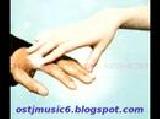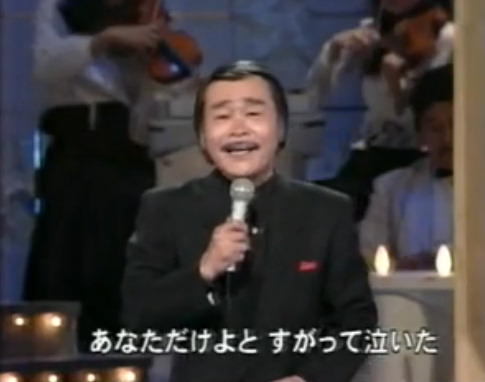
Few Japanese music stars are known outside Japan or Asia, but Japan is the second largest music market in the world, so the best-selling music artists from Japan managed to sell an impressive number of records…
Consulting the Oricon chart of best-selling singles in Japan over the last 4 decades (more exactly 1968-2006), I was surprised to discover that the stars I was expecting to see are missing from the top 10 list. Yes, on the Top 10 Best-selling Singles in Japan you cannot find Ayumi Hamasaki, Koda Kumi, Utada Hikaru, Namie Amuro, Gackt or X Japan…
Here is a countdown of the songs and artists that managed to enter the top 10:
10. Dreams Come True - Love Love Love
From 1995, 2.48 million sales
In 2006, an Oricon survey declared Love Love Love the second most popular Valentine’s Day song in Japan, after the Sayuri Kokusho’s Valentine Kiss.
9. SMAP - Sekai ni Hitotsu dake no Hana
From 2003 2.57 million sales
Sekai ni Hitotsu dake no Hana (A Flower Unlike Any Other in the World), together with Utada Hikaru’s Colors were the only singles to sell over 1 million copies in 2003 - the year when the CD sales started to decline due to the Japanese economic downturn.
8. Kazumasa Oda - Oh! Yeah! / Love Story wa Totsuzen ni
From 1991, 2.58 million sales
Oh! Yeah! / Love Story wa Totsuzen ni was used during a TV commercial for the insurance company Dai-ichi Mutual Life Insurance.
7. Mr.Children - Tomorrow never knows
From 1994, 2.76 million sales
Tomorrow Never Knows was used as theme song for the Japanese TV drama Wakamono no Subete.
6. Chage & Aska - Say Yes
From 1991, 2.82 million sales
Say Yes was considered a “wedding song” and was used as a theme for the Japanese TV drama 101 kaime no Propose.
5. Kome Kome Club - Kimi ga Iru Dake de
From 1992, 2.89 million sales
Kimi ga Iru Dake de was the theme song of the Japanese TV drama Sugao no Mama de.
4. Kentarou Hayami, Ayumi Shigemori - Dango 3 Kyodai
From 1999, 2.91 million sales
Dango 3 Kyodai was composed for a TV program for children, a song about 3 dango brothers.
The song was so successful that it became a social phenomenon in Japan.
3. Southern All Stars - Tsunami
From 2000, 2.93 million sales
The American band Allister made a cover version of this song in 2006.
2. Shiro Miya - Onna no Michi
From 1972, 3.25 million sales
Onna no Michi (The Way of a Woman) was the debut single of Shiro Miya and tells the story of a woman abandoned by her husband.
1. Masato Shimon - Oyoge! Taiyaki-kun
From 1975, 4.54 million sales
Oyoge! Taiyaki-kun, launched as a children’s song on a TV program, managed to surpass Onna no Michi and became the best-selling single in Japan (record certified by Guinness World Records).
Puţine vedete japoneze de muzică sunt cunoscute în afara Japoniei şi a Asiei, însă Japonia este a doua piaţă de muzică din lume, aşa că vedetele mari au reuşit să vândă un număr impresionant de înregistrări.
Consultând topul Oricon al celor mai bine vândute single-uri în Japonia în perioada 1968-2006, mare mi-a fost mirarea când am descoperit că niciuna dintre vedetele pe care mă aşteptam să le găsesc în listă nu erau prezente. Da, în acest top, nu se regăsesc Ayumi Hamasaki, Koda Kumi, Utada Hikaru, Namie Amuro, Gackt sau X Japan…
Iată care sunt melodiile şi artiştii care au reuşit să intre în Top 10 Best-selling Singles:
10. Dreams Come True - Love Love Love
Din 1995, 2,48 milioane copii vândute
Într-un sondaj făcut de Oricon în 2006, melodia Love Love Love a ocupat locul al doilea la cea mai populară melodie de Valentine Day, după Valentine Kiss a lui Sayuri Kokusho.
9. SMAP - Sekai ni Hitotsu dake no Hana
Din 2003, 2,57 milioane copii vândute
Sekai ni Hitotsu dake no Hana (A Flower Unlike Any Other in the World), împreună cu Colors a lui Utada Hikaru, au fost singurele două single care s-au vândut în peste 1 milion de copii în anul 2003, an în care au scăzut vânzările de CD-uri în Japonia, datorită crizei economice.
8. Kazumasa Oda - Oh! Yeah! / Love Story wa Totsuzen ni
Din 1991, 2,58 milioane copii vândute
Oh! Yeah! / Love Story wa Totsuzen ni a fost folosită în reclama TV pentru firma de asigurări The Dai-ichi Mutual Life Insurance Company.
7. Mr.Children - Tomorrow never knows
Din 1994, 2,76 milioane copii vândute
Tomorrow Never Knows a fost folosit ca theme song pentru drama Wakamono no Subete.
6. Chage & Aska - Say Yes
Din 1991, 2,82 milioane copii vândute
Say Yes a fost considerată “melodie de nuntă” şi a folosită ca theme song pentru drama 101 kaime no Propose.
5. Kome Kome Club - Kimi ga Iru Dake de
Din 1992, 2,89 milioane copii vândute
Kimi ga Iru Dake de a fost theme song pentru drama Sugao no Mama de.
4. Kentarou Hayami, Ayumi Shigemori - Dango 3 Kyodai
Din 1999, 2,91 milioane copii vândute
Cântecul Dango 3 Kyodai a fost compus pentru un program pentru copii, fiind povestea a trei fraţi dango. Melodia a avut un succes atât de mare, încât a fost un fenomen social în Japonia.
3. Southern All Stars - Tsunami
Din 2000, 2,93 milioane copii vândute
Formaţia americană Allister a realizat un cover după Tsunami, care a apărut în 2006 în albumul Guilty Pleasures.
2. Shiro Miya - Onna no Michi
Din 1972, 3,25 milioane copii vândute
Onna no Michi (The Way of a Woman) a fost melodia de debut a lui Shiro Miya.
1. Masato Shimon - Oyoge! Taiyaki-kun
Din 1975, 4,54 milioane copii vândute
Oyoge! Taiyaki-kun a reuşit să întreacă melodia Onna no Michi şi să devină cel mai vândut single din Japonia (certificat de Guinness World Records). A fost lansată ca un cântec pentru copii, în programul de televiziune Hirake Ponkikki.


